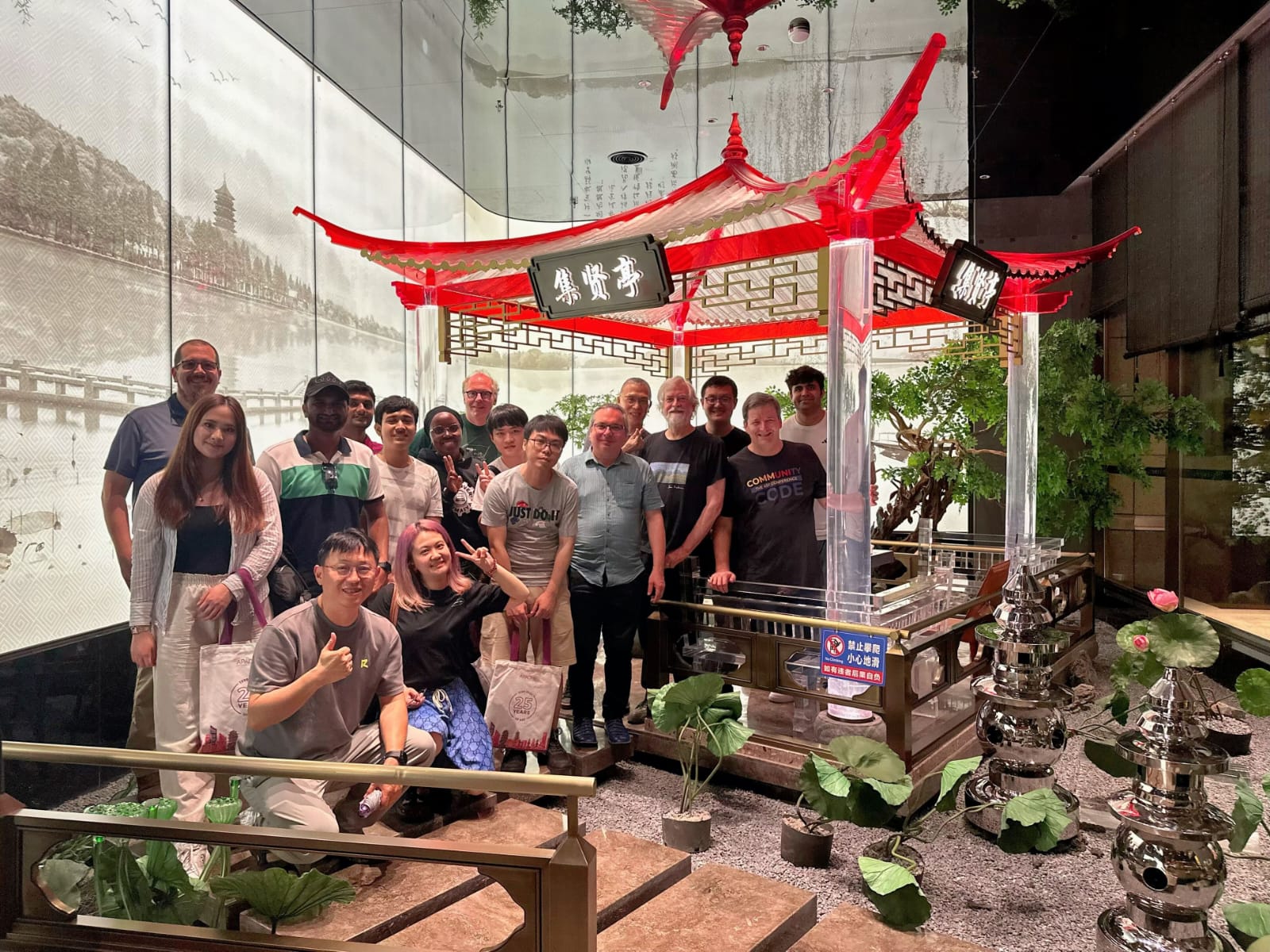I still remember scrolling through my Twitter feed in March 2024 when I stumbled upon something that would lead to an amazing adventure - the ASF (Apache Software Foundation) Travel Assistance grant for CommunityOverCode Asia 2024 in Hangzhou, China. At that time, I was already deep into open source, applying for programs like Google Summer of Code and HPCC Summer internship to gain more experience as a contributor. The opportunity to attend an Apache conference felt like a perfect fit, as I was genuinely interested in Apache-supported open source projects. I applied, sharing my past open source experiences and contributions, and to my surprise, I got selected!
For those not familiar with Apache, let me share what I’ve learned. The Apache Software Foundation (ASF) is a non-profit organization formed in 1999. They follow what’s called “The Apache Way” - a set of core beliefs that include collaborative software development, maintaining high-quality software, and ensuring respectful, technical-based interactions. It’s really about building a community that creates great software together.

First night in Hangzhou - Getting to know fellow volunteers over dinner
When I arrived in Hangzhou, I was immediately welcomed by the volunteer community. We had dinner at a duck restaurant (I stuck to limited non-veg options, but the atmosphere was wonderful). As travel assistance recipients, we were both volunteers and conference attendees, which gave us a unique perspective on the event.
The conference kicked off with a welcome session that highlighted Apache’s success in China. I was amazed by the number of contributors and projects coming from the region. The conference was organized into different tracks: Monolith & Microservices, Messaging, OLAP & Data, Data Storage, Data Lake, and Streaming. My friend Aditya Malik, a DevOps engineer, helped me navigate through the technical talks.

Manning our booth at the conference - spreading the Apache love!
During the conference, I got exposed to several technical concepts that were new to me. Let me share what I understood from these talks:
Apache Pulsar Cluster Scaling
I learned that Apache Pulsar is like a super-efficient message handling system. Think of it as a really smart post office that can handle millions of letters (messages) simultaneously without getting overwhelmed. The talk showed how they manage to keep everything running smoothly even when there’s a huge increase in messages - something that’s crucial for big companies handling massive amounts of data.
Impala Running on Iceberg
This was interesting! Apache Impala is like a super-fast librarian that can find any piece of information you need from a massive database. When combined with Iceberg (which is like an organized filing system), it becomes even more powerful. I could see how this would be useful when companies need to analyze huge amounts of data quickly.
Kafka Multi-cluster Architecture on Kubernetes
My friend Aditya helped me understand this better. Kafka is basically a system that helps different parts of an application talk to each other reliably. When running on Kubernetes (which helps manage applications), it becomes even more powerful. China Mobile showed how they use this to handle their massive communication needs - imagine coordinating millions of text messages and data transfers without losing any information!
Real-time Analysis with Apache Doris
This talk was about moving from Elasticsearch to Apache Doris for log analysis. While the technical details were complex, I understood that it’s about making sense of massive amounts of computer logs in real-time - like having a super-powered search engine that can instantly find and analyze information from millions of records.
AI and WebAssembly
One of the more fascinating talks was about making AI more accessible using WebAssembly (Wasm). From what I gathered, they’re trying to make it possible to run AI models anywhere - whether on your phone, laptop, or server - while keeping it secure and fast. It’s like creating a universal translator that helps AI speak any computer’s language!

My little adventure to Shanghai after the conference
Though much of the content was new and sometimes daunting, I found myself increasingly fascinated by the world of data pipelines. I realize this is where the future is heading, and I’m excited to learn more about these technologies.

Last day with all the volunteers and organizers - what an amazing team!
Looking back, this conference wasn’t just about learning technical concepts - it was about experiencing the true spirit of open source communities. I’m grateful for this opportunity and looking forward to diving deeper into the world of data pipelines and Apache projects. The future looks exciting, and I’m ready to be part of it.